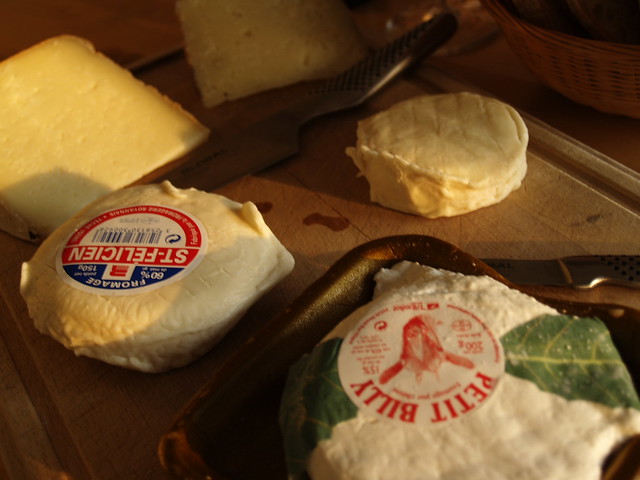As today is the first day of December, I thought I’d look into the origins of the names for this month in various languages.
December comes from the Middle English December/Decembre, from the Old French decembre, from the Latin december, from decem (ten) and the adjectival suffix -ber. December was the tenth month in the Roman calendar, which started in March [source]. The days between December and March were not included in the calendar as part of any month. Later they became January and February and were added to the beginning of the calendar [source].
In the Old English December was known as Ġēolamonaþ/Gēolmōnaþ/Iūlmōnaþ (“Yule month”) or ǣrra ġēola (“before Yule”). The word Yulemonth apparently exists in modern English, although is rarely used [source]. December is associated with Yuletide / Christmas in a few other languages: mí na Nollag (“month of Christmas”) in Irish, Mee ny Nollick (“month of Christmas”) in Manx, and joulukuu (“yule month”) in Finnish and Võro.
In many languages the name of this month is a version of December, but there are some exceptions.
In Aragonese December is abiento, in Asturian it’s avientu, in Basque it’s abendu and in Occitan it’s abén. These all come from the Latin adventus (arrival, approach, advent), from adveniō (arrive) and the suffix -tus [source].
In Belarusian December is снежань (sniežań) [ˈsʲnʲeʐanʲ], which comes from снег (snjeh – snow) [source]. The Cherokee name for December is also related to snow: ᎥᏍᎩᎦ (vsgiga) or “snow moon” [source].
In Proto-Slavic the month after the Winter solitice was known as *prosinьcь. There are a number of possible roots for this word: *siňь (gray), *sijati (to shine, glow – referring to the winter solstice) or *prositi (to pray – referring to Christmas). Descendents in modern Slavic languages include prosinec (December) in Czech, просинац (December) in Serbian, and prosinec (January) in Slovenian.
In Welsh December is Rhagfyr [ˈr̥aɡvɨ̞r / ˈr̥aɡvɪr] (“foreshortening”), because it’s a time when days get shorter [source].
December is “twelve month” or “month twelve” in Chinese: 十二月 (shí’èryuè), Japanese: 十二月 (jūnigatsu), Korean: 십이월 (12월/十二月/12月 – sipiweol), and Vietnamese: tháng mười hai (𣎃𨑮𠄩).
Are there other interesting names for December in other languages?
You can find the names of months in many languages here.









